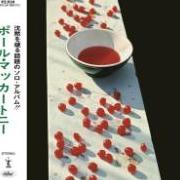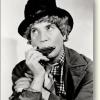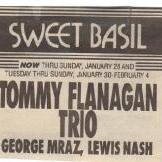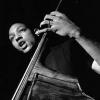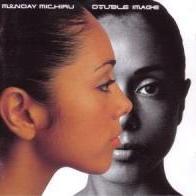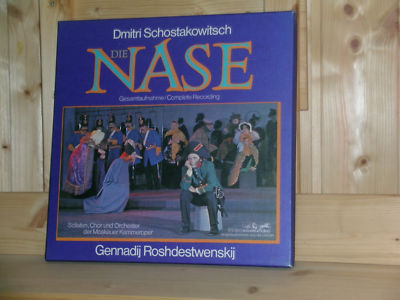
Mark Stryker
Members-
Posts
2,426 -
Joined
-
Last visited
About Mark Stryker
- Birthday 08/10/1963
Profile Information
-
Gender
Male
-
Location
detroit, mi
Recent Profile Visitors
12,220 profile views
Mark Stryker's Achievements
Community Regular (8/14)
-
Rare
-
Rare
-
Rare
-
Rare
-
Rare
Recent Badges
-
The University Musical Society in Ann Arbor invited me to write about Miles and Trane at 100 in advance of a forthcoming concert the organization is presenting in homage to these landmark centenaries featuring Terence Blanchard and Ravi Coltrane. There's also a sidebar with my personal Top 10 lists for both Miles and Trane as leaders, plus some bonus tracks. Main essay: https://ums.org/2026/01/28/miles-davis-and-john-coltrane-at-100/?fbclid=IwY2xjawPp8WpleHRuA2FlbQIxMQBzcnRjBmFwcF9pZBAyMjIwMzkxNzg4MjAwODkyAAEeKw-2FaGNwGLIphPeQfeIGn9xu6x_A6xIwH984npDGl-3l5PzESIUfV0vKKY_aem_Wadu6O_pYRY2b68MnYuG5g Sidebar: https://ums.org/2026/01/29/miles-and-trane-on-record-a-critics-favorites/
-
Gang, I am beyond thrilled to report that The Best of the Best: Jazz from Detroit, which I wrote and produced with two New York filmmakers, will officially premiere on Prime Video on December 9! By far the most frequently asked question I get about the film is when and where can I see it? Now I have an answer. You and your families and friends across the country will be able to stream the film starting this holiday season. My coproducers and I have been striving toward the goal of national distribution since work began on the documentary five years ago, and here we are. The appearance on Prime Video is also just the first step toward what promises to be a dynamic 2026 for the film. In addition to multiple streaming platforms, the documentary will screened at an increasing number of arts institutions, universities, jazz clubs, and other venues throughout the country. I'll be able to share more details soon. If anyone is connected to an organization, school, or other presenter that might have an interest in booking the film, please reach out through the PM function here or email: mstryker63 (at) gmail. For those who may not have previously been aware of the film, it was inspired by my 2019 book, Jazz from Detroit (University of Michigan Press). A mutual friend connected me my eventual partners, Daniel Loewenthal (director, editor, producer) and Roberta Friedman (producer). We premiered the film last year in Detroit, and spent the last year on the festival circuit, appearing in nine festivals across North America and Europe. Here's a brief synopisis from our press materials: -- The Best of the Best: Jazz from Detroit weaves a compelling historical and cultural tapestry connecting Detroit’s innovative and influential jazz legacy, the city’s dramatic rise and fall as an industrial power, and the struggles and triumphs of its resilient African American community. From legends like Elvin Jones and Yusef Lateef, to contemporary stars like Regina Carter and Kenny Garrett, you can’t tell the history of jazz without telling the history of jazz from Detroit and the profound tradition of mentorship nurturing Detroit jazz since the 1950s. Among the musicians, historians, and writers featured in the film are: Geri Allen, Terence Blanchard, George Bohanon, Kenny Burrell, Ron Carter, Regina Carter, James Carter, Barry Harris, Marion Hayden, Louis Hayes, Robert Hurst III, Hank Jones, Elvin Jones, Thad Jones, Sheila Jordan, Yusef Lateef, Christian McBride, Charles McPherson, Pat Metheny, Johnny O’Neal, Endea Owens, Karriem Riggins, Rodney Whitaker, Don Was, David Maraniss, Herb Boyd, Jamon Jordan, Marsha Music, and many others. (90 min.) More info can be found at https://www.jazzfromdetroitfilm.com/ --
-
Fresh Sounds released this compilation earlier this year. CDs 2 and 3 are filled with rare material that Moore made as a leader in the 1950s and '60s. Has anyone heard this set and can characterize the sound quality? (I know the issues with the label ... I'm looking for an evaluation before I pull the trigger.) Thanks. https://www.freshsoundrecords.com/oscar-moore-albums/57473-the-enchanting-guitar-of-oscar-moore-the-1945-1965-years-3-cd-box-set.html
-
Jack and Al I heard Jack DeJohnette live many times, but the first time I saw him in person he wasn’t performing. He was hanging out in the corner of a long-gone Greenwich Village club, Lush Life, checking out a casual trio gig by pianist Richie Beirach, bassist Charlie Haden, and drummer Al Foster. It was March 1982 and I was 18. On the break, my older brother crossed paths with Al at the sink in the men’s room. Without prompting, Al looked at my brother and said, excitedly, “Did you see Jack DeJohnette is in the club?! I’m so nervous! Jack is my idol!” Think for second about how brilliant Al Foster was, and how much he had accomplished by 1982. Only five months younger than Jack, Al was 39 and at the top of his game. Yet Jack’s presence at his gig had Al gushing like a 12-year-old who just saw his favorite baseball player in the flesh. That’s how great Jack DeJohnette was and how much respect he commanded from his peers. Now both Jack and Al are gone, having ided almost exactly five months apart. They died almost exactly five months apart, Al at 82 on May 28 and Jack at 83 three days ago on the 26th. It's almost impossible to fathom how much aesthetic ground Jack covered during his career, how many diverse bands and recordings he defined with his creativity and unique sound, how many drummers he influenced. Jack remains in a class by himself, partly because beyond his landmark work as a drummer, he was also an imposing bandleader, composer, conceptualist, and multi-instrumentalist. But Al also belongs in the top tier of post-bop drummers, and it’s interesting to think about the similarities and differences between them. Both were first-rate colorists, masters of texture and dynamics, each able to strike a groove across a dizzying array of idioms. There was more pure bebop in Al’s DNA than in Jack’s. Al might opt for minimalism where Jack might choose a maximalist approach. These are just generalities, of course. The decision making of both drummers was at once remarkably advanced and unpredictable. I never heard either make a bad choice on the bandstand. Some losses are tougher than others but losing Al and Jack within five months? Goddman ... All I can say is that whoever is running this fucking circus better be taking damn good care of Billy Hart and Louis Hayes.
-
#JazzFromDetroit
-
What Classical Music Are You Listening To?
Mark Stryker replied to StarThrower's topic in Classical Discussion
-
https://whatsupnewp.com/2025/09/christian-mcbride-steps-down-as-newport-jazz-festival-artistic-director/
-
Public Service Announcement "The Best of the Best: Jazz from Detroit," the documentary film that I wrote and co-produced, now has its own YouTube channel. Please consider clicking below and subscribing. We'll be posting performance videos, excerpts from the film, parts of interviews that didn't survive the final cut, and other special features. Our first entry is an except from our interview with maestro Charles McPherson in which he improvises two of the most relaxed, spare, and soulful choruses of the blues you'll ever hear. Next screening is Oct. 3 in East Lansing, Michigan. We've think we'll have some exciting news about screenings and distribution in coming soon but it's too early to talk about it all. #JazzFromDetroit
-
One of the four tunes from 2/18/66.
_forumlogo.png.a607ef20a6e0c299ab2aa6443aa1f32e.png)
